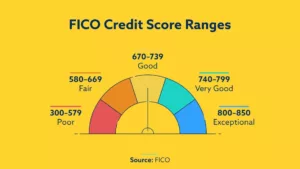Hopefully, this is not the first time you’ve heard this — but the Federal Trade Commission oversees the Fair Credit Reporting Act and the Fair Debt Collection Practices, both of which are essential to repairing credit.
Among its many functions, the Federal Trade Commission is the nation's consumer protection agency. One of the major functions helpful to consumers in repairing credit comes in the form of the agency’s job to protect consumers against unfair, deceptive, or false business practices in the marketplace.
The FTC makes sure that companies are playing by the rules in advertising, fair financial and lending practices, telemarketing, the privacy of your personal information, and fraud. The Bureau of Consumer Protection conducts investigations, sues companies and people who break the law, educates consumers and businesses about their rights and responsibilities, and writes rules to protect consumers like you.
Collecting consumer complaints online, by phone or through the mail is vital to the agency’s ability to pursue companies violating the Fair Credit Reporting Act and the Fair Debt Collection Practices Act.
If consumers have no way of lodging complaints, the FTC cannot act. The FTC can investigate individual companies or entire industries. The FTC can sue a company. Whether the FTC and the company agree on a settlement—or a court of law orders the company to stop—the company must be sure it follows what the settlement or court order says. Sometimes the company must pay money as a penalty. The FTC checks up on the company for years to be sure it's doing what it promised to do.
Over the years the FTC has been vital in pursuing, enforcing fines and sometimes shutting down rogue debt collectors which can only be accomplished through consumer complaints.
Unfortunately, on October 2, 2013, the Federal Trade Commission closed due to the government shutdown. Consumers cannot file complaints and all public workshops, roundtables, hearings and conferences are postponed until further notice.
Consumers attempting to access the FTC’s main site to file a complaint or get information through its Consumer Blog may encounter this message:

Fortunately your State’s Attorney General may be able to help you. Complaints against debt collectors and even consumer reporting agencies like Experian, Equifax and Transunion can be lodged with your State’s Attorney General.
Hopefully the government shutdown won’t last for long, consumers need the FTC but more importantly, government employees deserve their paychecks – unlike the members of Congress.











